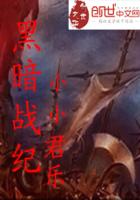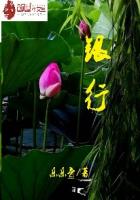As might be expected, Calvin refused to admit that the sacraments were endowed with any objective power of conferring Grace. In the case of their reception by the elect, however, he held that they were the means of strengthening the faith by which justification is acquired, but for those predestined to damnation they were mere signs without any spiritual effect. In regard to the Eucharist, while he rejected the Catholic view of Transubtantiation, he maintained against the Lutherans that Impanation or Companation was equally absurd. Nor did he agree with Zwingli that the Eucharist is a mere sign of Christ's love for men. According to him Christ is really present, in the sense that though the bread and wine remain unchanged, the predestined receive with the Eucharistic elements a heavenly food that proceeds from the body of Christ in Heaven.
Like Luther he contended that the true Church of Christ is invisible, consisting in his view only of the predestined, but, realising the necessity for authority and organisation, he was driven to hold that the invisible Church manifested itself through a visible religious society. Unlike Luther, however, he was unwilling to subordinate the Church to the civil power, believing as he did that it was a society complete in itself and entirely independent of temporal sovereigns.
Each Calvinistic community should be to a great extent a self-governing republic, all of them bound together into one body by the religious synods, to which the individual communities should elect representatives. The churches were to be ruled by pastors, elders, and deacons. Candidates for the sacred ministry were to receive the confirmation of their vocation by a call from some Calvinistic church body, and were to be ordained by the imposition of the hands of the presbyters or elders. For Calvin as for Luther the Holy Scriptures were the sole rule of faith to be adopted by both the preachers and the synods. The special illumination of the Holy Ghost was sufficient to guard individuals from being deceived either in determining what books are inspired, or what is the precise meaning which God wished to convey in any particular book or passage.[4]
----------
[1] Baird, /Theodore Beza, Counsellor of the French Reform/, 1900.
[2] Galli, /Die Lutheran, und Calvinist, Kirchenstrafen im Reformationszeitalter/, 1878.
[3] Rouquette, /L'Inquisition protestante. Les victimes de Calvin/, 1906. Galiffe, /Quelques pages d'histoire exacte sur les proces intentes a Geneve/, 1862. Paulus, /Luther und Gewissensfreiheit/, 1905. Id., /Melanchthon und Gewissensfreiheit/ (/Katholik/, i., 546 sqq.).
[4] Schwane, /Dogmengeschichte der neuerenzeit/. Cunningham, /The Reformers and the Theology of the Reformation/, 1862.
(b) Calvinism in France.
Lavisse, /Histoire de France/ (vols v.-vi.), 1904-5. De Meaux, /Les luttes religieuses en France au XVIe siecle/, 1879. Imbart de la Tour, /Les origines de la Reforme/, vols. i.-ii., 1904-9.
Hauser, /Etudes sur la Reforme francaise/, 1909. Capefigue, /Histoire de la reforme, de la ligue et du regne de Henri IV./, 4vols., 1834. Maimbourg, /Histoire du Calvinisme/, 1682. Soldan, /Geschichte des Protestantismus in Frankreich bis zum Tode Karls ix./, 2 Bde, 1855. Baird, /History of the Rise of the Huguenots in France/, 2 vols., 1879. See also bibliography, chap. iii. (a).
Many causes combined to favour the introduction of the reformed doctrines into France. Owing to the anti-papal attitude adopted by the French theologians during the Great Western Schism, there was still lurking in many circles a strong feeling against the Holy See and in favour of a national Church, over which the Pope should retain merely a supremacy of honour. Besides, the influence of the old sects, the Albigenses and the Waldenses, had not disappeared entirely, and the principles of the French mystics favoured the theory of religious individualism, that lay behind the whole teaching of the reformers.
The Renaissance, too, was a power in France, more especially in Paris, where it could boast of powerful patrons such as Margaret of Navarre, sister of Francis I. and wife of the King of Navarre, the king's mistress, his favourite minister Du Bellay, and the latter's brother, the Bishop of Paris. Not all the French Humanists, however, were equally dangerous. A few of them were undoubtedly favourable to Luther's views, while many others, infuriated by the charges of unorthodoxy levelled against them, were inclined to look with complacency on whatever was condemned by their Scholastic opponents.
The proximity of Strassburg, where Lutheran and Zwinglian doctrines found support, and the close relations existing between the Paris University and German scholars helped to disseminate among Frenchmen the writings of Erasmus, Luther, and Melanchthon and with them the new religious views.
Against the success of the Reformation in France was the fact that the people, Latin rather than Teuton in their sympathies, were thoroughly devoted to their religion and to the Holy See, that the bishops though nominated by the king according to the Concordat of 1516, were more zealous than their German brethren, that in the main Paris University, then the great centre of intellectual life in France, was thoroughly Catholic, and that the queen-mother, the chancellor of state, the leading ministers both lay and ecclesiastic, and the parliamentary authorities could be relied upon to offer Lutheranism their strongest opposition. Nor, however much Francis I. might be inclined to vacillate in the hope of securing the help of the German Protestant princes in his struggle with the empire, had he any desire to see his kingdom convulsed by the religious strife raging on the other side of the Rhine.
In 1521 the Parliament of Paris with the approval of the king forbade the publication of writings dealing with the new religious views.















